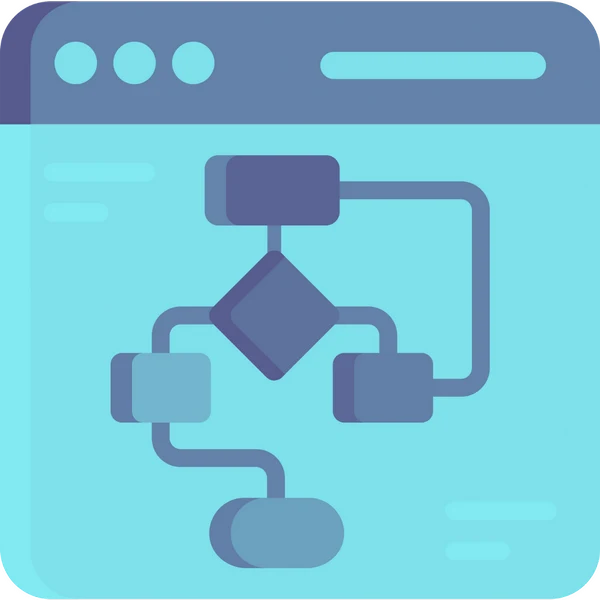If you’re not implementing AI in your business, you’re leaving money on the table. And if you’re struggling to implement AI, know you’re not alone. But don’t worry, we’re here to help.
In this article, we are going to break down the three biggest challenges of AI implementation. Whilst not insurmountable barriers, a lack of clean or known-good data, careful consideration of current systems, and being informed of the true cost of a proprietary solution, a lot of companies are struggling to get their internal AI solutions out of the pilot stage.
So if you’re serious about taking your business to the next level, read on.
- Challenge 1: Lack of data and expertise
- Challenge 2: Integration with existing systems
- Challenge 3: Cost
- Conclusion
Challenge 1: Lack of data and expertise
The lack of data is one of the biggest challenges to AI implementation. AI systems need large amounts of high-quality data to train and make accurate predictions, provide relevant replies, segment an audience, and more. Many companies simply do not have the necessary data or even access to the data their business generates to implement AI as effectively as presently possible.
Along with this lack of data, they do not possess the expertise of how their business’ data streams are structured, where these data lakes reside, or if they can even fully access the data their business generates. Thus, they become unable to graduate past the pilot stage and their AI implementation mind as well be an off-the-shelf solution.
For example, a company that wants to develop an AI system to recommend products to customers would need a large dataset of customer purchases and product ratings. This data would be used to train the AI system to learn the patterns and preferences of customers.
If the company does not have this data in-house, it would need to collect it from other sources, such as social media, their SaaS vendors(CRM, CX programs, etc), or even public datasets. This can be a time-consuming and expensive process.
Additionally, the company would need to have the expertise to develop and train the AI system. This requires a team of skilled engineers and scientists who have experience with AI and machine learning.
Many companies simply do not have the resources or expertise to implement AI in-house. This is why many companies are choosing to work with custom software development companies with successful AI implementations under their belt.
When choosing an AI implementation service provider, there are some key attributes that must be aligned:
- Experience and expertise: The provider should have a proven track record of successful AI implementations. They should also have a team of experienced AI experts who can help you overcome the challenges of AI implementation.
- Industry knowledge: The provider should have a deep understanding of your industry and the specific challenges and opportunities that AI presents. This will help them to develop AI solutions that are tailored to your specific needs.
- Integration capabilities: The provider should be able to integrate AI systems with your existing business systems. This is essential for ensuring that the AI systems are useful and effective.
- Communication and collaboration: The provider should be able to communicate effectively with you and your team throughout the AI implementation process. They should also be willing to collaborate with you to ensure that the AI solutions meet your specific needs.
- Transparency: The provider should be transparent about their pricing, services, and process. They should also be willing to answer your questions and address your concerns.
- Support: The provider should offer ongoing support after the AI systems are implemented. This is important for ensuring that the systems are running smoothly and that you are able to get the most out of them.
- Cost: The provider should offer competitive pricing for their services. It is important to get quotes from multiple providers before making a decision.

Challenge 2: Integration with existing systems
Another challenge to AI implementation is the integration with existing business systems. AI systems need to be able to communicate with and access data from other systems in order to be useful in a business context. This can be a complex and challenging task, especially for organizations with complex IT systems.
For example, a company that wants to develop an AI system to automate quality control inspections would need to integrate the AI system with its existing manufacturing and inspection systems. This would allow the AI system to access the data it needs to make accurate predictions and decisions.
Integrating AI systems with existing business systems can be a complex and expensive process. It requires careful planning, expert execution, and crystal clear communication.
Unfortunately, the only real solution here is to have access to a team of experienced software engineers who have successfully created custom APIs, applications, or software enhancements. Whether you find them yourself or rely on a vendor is up to you.

Challenge 3: Cost
Catching numerous companies by surprise is the cost of developing and implementing AI solutions. As you may imagine, it can be quite high if not carefully managed. The old adage “what gets tracked, gets managed” applies here and in so many areas of business.
If you don’t know what to track (clear KPIs, usage, iterations, etc), it will be impossible to even understand the usage of your new AI system, much less how much it’s actually costing you. This is especially true for complex AI systems that require large amounts of data and computing power.
Simply stated, the cost of AI implementation will vary greatly depending on the complexity of the system, the amount of data required, and the expertise of the team developing and implementing the system. Whilst there are programs that can be utilized to drive down some of the costs associated with AI, such as Research & Development Tax Credits, you will still have ongoing costs associated with your new AI system. of your AI system prior to
However, even simple AI systems can be expensive to develop and implement if not carefully considered. This is one of the reasons why many companies are hesitant to invest in AI; the absence of clearly defined KPIs or processes to measure its efficacy mean that it is too big a risk to take!
Conclusion
AI is a powerful tool that can help businesses to improve efficiency, productivity, and make better decisions. However, there are a number of challenges to AI implementation. By working with a custom software development company like CodingIT, businesses can overcome these challenges and reap the benefits of AI.
If you’re serious about taking your business to the next level, you need to implement AI. And if you’re struggling to implement AI, don’t worry, I’m here to help.
CodingIT can help you overcome all of the challenges of AI implementation, from lack of data and expertise to integration with existing systems to cost.
So what are you waiting for? Contact CodingIT today to learn more about how AI can help you grow your business.